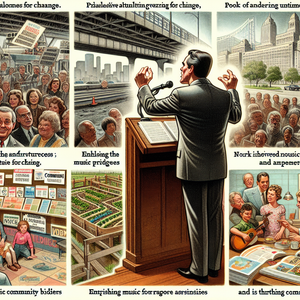The Future of Trucking: How Technology is Opening Doors for Inexperienced CDL Drivers

One of the most transformative advancements in the trucking industry is automation. Companies are increasingly investing in automated driving technologies to streamline the transportation of goods. While fully autonomous trucks are still undergoing testing, semi-autonomous features such as lane-keeping assistance and adaptive cruise control are now commonplace in many fleets. This shift allows inexperienced drivers to gain valuable on-the-job experience while benefiting from advanced safety systems that act as a safety net. For example, companies like Waymo and Tesla are at the forefront of developing self-driving technology, enhancing safety and enabling trucking businesses to reduce costs and improve efficiency. As these technologies become more mainstream, the demand for drivers who can operate alongside automated systems will grow, opening doors for people who may not have previously considered a career in trucking.
AI and Data Analytics: Enhancing Decision-Making
Artificial intelligence (AI) and data analytics are reshaping decision-making processes within the trucking industry. By leveraging large datasets, companies can optimize routes, improve fuel efficiency, and minimize maintenance costs. For inexperienced drivers, this means entering a sector that is increasingly data-driven; decisions are informed by real-time analytics instead of guesswork. Fleet Management Systems equipped with AI algorithms analyze traffic patterns, weather conditions, and other variables to recommend the best routes for drivers. Such technology not only enhances timely deliveries but also promotes safety by helping drivers avoid hazardous situations. New drivers can utilize these tools to build their skills, gain confidence, and enhance their overall performance on the road.
Training Programs Enhanced by Technology
The traditional training pathways for CDL drivers are evolving due to technological advancements. Many trucking schools and training programs now incorporate virtual reality (VR) and simulation-based training into their curricula. These immersive experiences allow new drivers to practice their skills in a controlled environment, reducing the anxiety often associated with entering a new profession. Moreover, online courses and mobile apps are providing flexible learning options for aspiring drivers. They can study at their own pace, access resources on demand, and connect with mentors in the industry. This accessibility is particularly beneficial for individuals who may not have the time or resources to attend conventional classroom training.
The Gig Economy and Flexible Work Opportunities
The rise of the gig economy has also significantly impacted the trucking industry, creating flexible work opportunities for inexperienced drivers. Platforms like Uber Freight and Loadsmart allow drivers to select their own loads and schedules, offering a level of autonomy that was previously uncommon in the industry. This flexibility can be especially appealing to newcomers who want to balance driving with other commitments or explore different facets of trucking before committing to a full-time role. These platforms typically require minimal experience, making them an ideal entry point for those looking to break into the sector. Additionally, they provide drivers with the chance to build their reputations and gain hands-on experience, which can be invaluable when seeking more permanent positions.
As the trucking industry continues to adapt to technological advancements, both seasoned professionals and newcomers will reap the benefits of these changes. For inexperienced CDL drivers, the future is promising, with automation, AI, and innovative training methods paving the way for new career opportunities. By embracing these technologies and the flexibility offered by the gig economy, aspiring drivers can navigate their entry into the trucking world with greater ease and confidence. The trucking industry is not merely evolving; it is inviting a new generation of drivers to partake in its exciting future, fostering an inclusive environment that values both experience and potential.
Fleet Management Analyst
FedEx, UPS
Core Responsibilities
Analyze fleet performance metrics to optimize operational efficiency and reduce costs.
Collaborate with drivers and dispatch teams to enhance route planning using data analytics.
Monitor vehicle maintenance schedules and ensure adherence to safety regulations.
Required Skills
Proficiency in data analysis tools (e.g., Excel, Tableau) and fleet management software.
Strong problem-solving skills and attention to detail.
Knowledge of trucking regulations and industry best practices.
Autonomous Vehicle Safety Operator
Waymo, Tesla
Core Responsibilities
Monitor and oversee the operation of semi-autonomous trucks during testing phases.
Ensure compliance with safety protocols while working alongside AI systems.
Provide feedback on system performance and suggest improvements based on real-world experiences.
Required Skills
Strong understanding of vehicle automation technologies and safety standards.
Excellent observational skills and the ability to make quick, informed decisions.
Experience in trucking or automobile operations is beneficial.
Driver Training Specialist
Trucking schools, training centers
Core Responsibilities
Develop and deliver training programs incorporating VR and simulation-based learning for new drivers.
Assess trainee progress and provide feedback to enhance their driving skills and confidence.
Stay updated on industry trends and best practices in driver education.
Required Skills
Experience in driver training or education, preferably with a CDL.
Familiarity with new training technologies and instructional design principles.
Strong communication and mentorship abilities.
Logistics Coordinator
XPO Logistics, C.H. Robinson
Core Responsibilities
Plan and coordinate shipments, ensuring timely delivery and efficient use of resources.
Collaborate with drivers and transportation providers to manage schedules and routes.
Utilize AI-driven tools to analyze logistics data and improve operational strategies.
Required Skills
Strong organizational skills and ability to multitask in a fast-paced environment.
Proficiency in logistics software and data analysis.
Good communication skills to liaise with different stakeholders.
Freight Broker
Freight brokerage firms, logistics companies
Core Responsibilities
Act as an intermediary between shippers and carriers, negotiating rates and arranging transportation.
Utilize technology platforms to match loads with available drivers.
Build and maintain relationships with carriers and clients to ensure repeat business.
Required Skills
Strong negotiation and sales skills, with a deep understanding of the trucking industry.
Familiarity with freight management software and tracking systems.
Ability to work independently and manage multiple accounts effectively.


